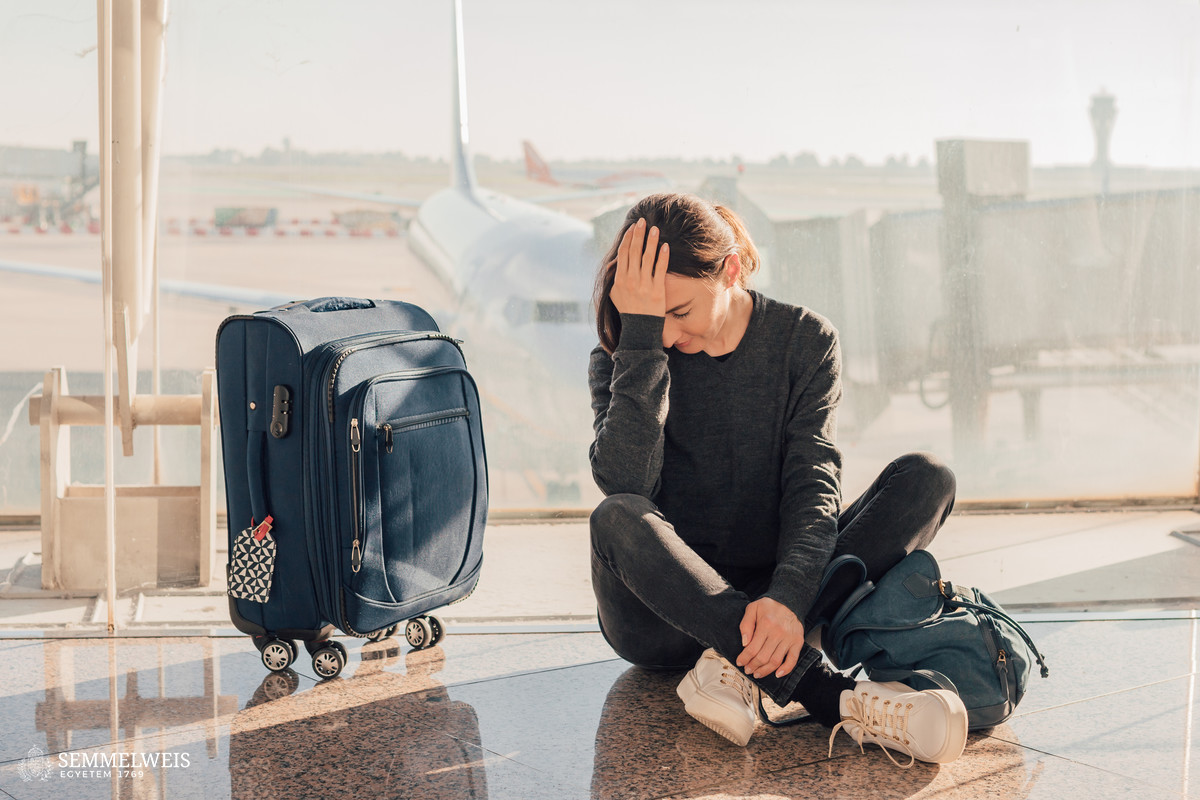
Traveling can be an exciting adventure, but it often comes with unforeseen stressors like delays, crowded venues, or abrupt changes in plans. For students, professionals, and anyone on the move, managing travel-related stress is crucial for maintaining well-being and enjoying the journey. Semmelweis University, renowned for its focus on health sciences and stress management research in Hungary, highlights practical techniques to help travelers handle stressful situations with composure and confidence.
Understanding Travel Stress and Anxiety
Travel stress manifests in various physical and mental symptoms such as rapid heartbeat, sweating, dizziness, impatience, or frustration. According to Dr. György Purebl, Director of the Institute of Behavioral Sciences at Semmelweis University, it’s natural to experience tension during disruptions like delays or crowded spaces. However, recognizing the signs early allows individuals to employ effective stress management techniques rather than reacting impulsively.
The Importance of Preparing for Stressful Travel Situations
While we cannot always control delays or sudden inconveniences, we can prepare ourselves mentally and physically to respond calmly. Anticipating potential stressors and developing coping strategies is particularly important for those who travel frequently, whether for academic commitments at Semmelweis University or personal travel. This proactive approach enhances resilience, reduces anxiety, and helps maintain clarity even in challenging circumstances.
Stress Management Techniques Supported by Semmelweis University
1. Mindfulness and Conscious Presence
Mindfulness involves focusing on the present moment and accepting the current situation without judgment. In stressful travel scenarios, such as waiting at airports or borders, practicing mindfulness can prevent panic. For example, closing your eyes, taking deep, deliberate breaths, and acknowledging your feelings can shift focus away from frustration towards calmness. A simple exercise recommended by Dr. Purebl is to breathe slowly: inhale to a count of three, exhale to a count of three, then pause for a second. Repeating this process can regulate your nervous system and diminish feelings of stress.
2. Relaxation and Breathing Exercises
Controlled breathing is a powerful tool to manage acute stress episodes. Using your phone or stopwatch, you can set a rhythm for breathing exercises, helping your body relax and reduce physical symptoms of anxiety. Additionally, listening to relaxation recordings, calming music, or meditation podcasts can enhance a sense of peace. Progressive muscle relaxation, where you tense and then release muscle groups starting from the feet up, can also alleviate physical tension caused by stress.
3. Re-evaluating and Reframing the Situation
Instead of dwelling on what’s causing frustration, reframe the experience by seeing waiting or delays as an opportunity for productive activities. You might catch up on reading, answer emails, or plan your trip. If you are traveling with children, engaging them with games or stories can make waiting times more pleasant, transforming potential stress into an enjoyable shared experience. Being flexible and adaptable in mindset is a critical component in stress management, especially during travel.
Special Considerations for Anxiety Disorders and Phobias
Some travelers may experience heightened anxiety or irrational fears, such as claustrophobia. For these individuals, gradual exposure therapies or virtual reality-assisted treatments, as practiced at Semmelweis University, can be helpful. Consulting mental health professionals for personalized strategies ensures that such anxieties do not compromise safety or enjoyment during travel.
Additional Tips for Stress-Free Travel
- Plan ahead by knowing your route, delays, and available amenities at your destination.
- Carry comforting items like headphones, a favorite book, or relaxation tools.
- Stay hydrated and avoid caffeine or heavy meals that can increase agitation.
- Wear comfortable clothing and consider travel accessories like neck pillows or eye masks.
- Stay connected with friends or family who can offer support if needed.
Semmelweis University’s extensive research and clinical expertise in stress management reinforce that effective preparation and practiced relaxation techniques can significantly ease travel-related stress. Recognizing early signs of tension and applying these techniques can transform stressful situations into manageable ones, ensuring a smoother journey.
Take the Next Step in Travel Stress Management
If you are interested in learning more about stress management and relaxation techniques, explore programs and resources available at Semmelweis University. Taking proactive steps today can help you handle travel stress confidently, whether for academic pursuits, leisure, or professional commitments.
Remember, being prepared is key to reducing anxiety and enjoying your travels. Implement these strategies, stay proactive, and turn travel challenges into opportunities for calm and control.

